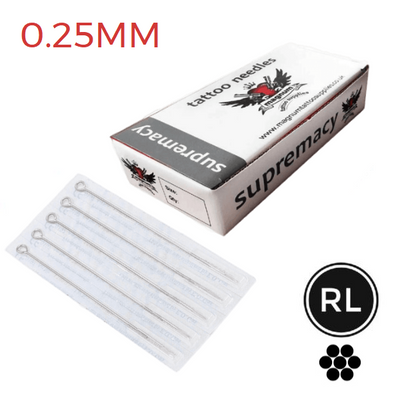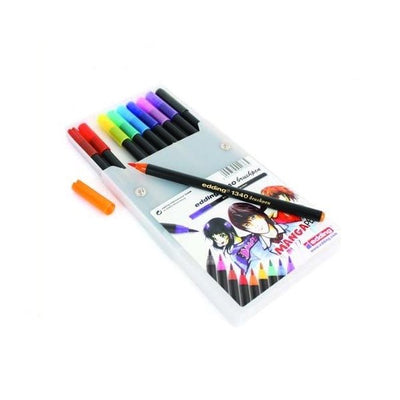Starting out as a tattoo artist can be intimidating, and it's important to understand that there is much more involved in creating beautiful body art than just having an artistic eye.
As a newcomer to the tattoo industry, you need to know the right tips and tricks before beginning your first ink experience. From proper equipment choice to client consultation, not following these guidelines could lead to disaster!
This blog post provides helpful advice for apprentices starting out in a tattoo shop. We'll cover everything you need to know so you can have a successful start on your journey into the world of professional tattooing. With our guidance, you'll be ready for any challenge that comes your way!
The tattoo artist journey
As a beginner tattoo artist, you can expect to go through a learning process that will help you become an experienced and successful professional. A tattoo apprenticeship typically takes a few years, a lot of hard work, and many hours spent in the tattoo studio.
During your apprenticeship, you will learn from experienced tattoo artists, practise on fake skin (or artificial models), and eventually work with live clients. Your mentor or studio owner will guide you through the stages of becoming a successful artist, helping you to understand how to run a business and create beautiful tattoos safely.
A lot of time and dedication leads up to the moment when you're ready to complete your first tattoo. However, you'll soon notice that as your abilities, confidence, and general tattoo know-how improves, so does your portfolio.

What is a tattoo for beginners?
Tattoo apprentices typically start out by completing small designs for their first tattoos. These tattoo designs usually include simple lines, shapes and symbols like hearts or stars.
The design will usually be small in size, as this helps apprentices to gain experience with the art form without having to worry about large intricate pieces that they might not be ready for. It also allows them to perfect the tattooing process and build confidence in their craft before moving on to bigger projects.
Choose the right equipment for your first tattoo experience
Having the right equipment for your first tattoo experience is a crucial step in ensuring success.
Get to know your tattoo machine
Apprentices should use tattoo machines (sometimes referred to as tattoo guns) that are easy to handle and have adjustable settings such as voltage and stroke. You should have already used practice skin to get a good understanding of how your machine feels in your hands, as well as how to make adjustments and troubleshoot any issues that may arise.
Tattooing with human skin can feel different to using fake skin. Beginner artists should expect a bit of a learning curve when transitioning from practice skin to actual tattooing. However, it’s important to remember that the fundamentals are the same – the only difference is that the human skin you’re now working on is alive and will react differently.
Have all your tattoo equipment ready
Having all of your equipment set up and ready to go before the appointment will help ensure that your client's tattoo begins on time and without any disruptions. Make sure you have supplies like tattoo ink, ink caps, needles, gloves, and other protective gear, all within easy reach.
The last thing you want to be doing is running around looking for tattooing equipment rather than focusing on the task at hand! Being prepared is the best way to maximise efficiency and minimise stress.

Follow safety and hygiene protocols
Hygiene is an essential part of any tattoo artist's role and must be taken seriously, especially when it comes to a beginner's first ink experience. It is important to adhere to the strict safety and hygiene protocols you've learned during your apprenticeship in order to avoid potential infections, cross-contamination, or other complications for your client.
If you practise tattooing on fake skin, we recommend you follow the same hygiene standards, such as using a clip cord sleeve and wearing gloves. Doing so consistently will help you establish good habits and make them second nature to you.
How to handle difficult situations that may arise for tattoo artists
As a tattoo artist, you may encounter difficult situations during your first session with a client. It's important to be prepared and know how to handle these situations in a professional way. Here are some tips on how to handle or prevent mishaps from happening:
Communicate clearly with your client
Having clear communication with your client is essential when completing your first tattoo. This can help ensure that you both have an enjoyable experience.
It's important to be upfront and honest when talking with your client about their tattoo. Make sure you explain the process, set realistic expectations, and discuss any potential risks associated with the procedure. It is also important to take the time to answer any questions they might have.
Being informed and prepared will help ensure that everyone's experience is positive and that your client has a great tattoo when it's finished! Any good tattoo artist will also inform their client about the healing process of their tattoo.
Respect your client's pain threshold
Respecting a client's pain tolerance is essential for creating a successful tattoo experience. If you start tattooing and they are unable to sit through the pain, be sure to give them a break and talk with them about how they are feeling.
Keep calm and stay focused
One of the keys to success is remaining focused on the task at hand and not getting overwhelmed by the emotions of the moment. Focus on the basics such as tattoo needle depth or simples shading techniques
If a mistake is made, don't panic! Take some time to assess the situation and then calmly work on a solution. Don't feel ashamed if you have to ask a more experienced tattoo artist if you need advice on how to improve your tattooing skills.
Remember to stay positive and believe in your abilities—don't put too much pressure on yourself.

Keep learning and practising!
As an apprentice tattoo artist, you have already taken the first important steps to becoming a professional. You now need to continue your growth by learning more about the art of tattooing, mastering more complex techniques and building up your skills and confidence. Practising is the key to success in tattooing and it's important that you keep honing your craft.
Developing the knowledge and skills to become an expert of the tattoo process will ensure that you can create professional tattoos for your clients. With dedication, hard work and these tips, you'll be a great tattoo artist in no time!
From first tattoo to experienced tattoo artist
Becoming a professional tattoo artist takes time and dedication, but it is achievable with the right attitude and dedication.
Remember, no matter how experienced a tattoo artist may be today, they all started somewhere. Even the most Instagram-famous tattoo artists had to begin their journey by completing their first tattoo—and it was likely just as intimidating for them as it is for any other apprentice.
Shop tattoo apprentice equipment now.



























































 Studio supplies
Studio supplies












 Power & batteries
Power & batteries








 Aftercare
Aftercare





















 Apprentice
Apprentice


 Piercing & jewellery
Piercing & jewellery







 PMU supplies
PMU supplies




 New arrivals
New arrivals
 Gift vouchers
Gift vouchers
 Shop all
Shop all















































